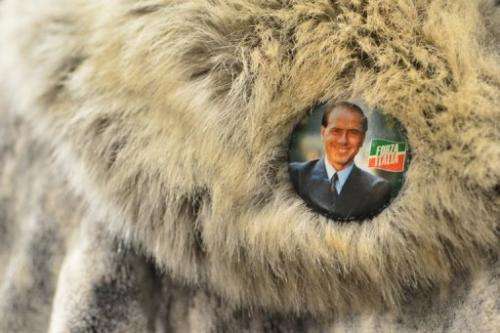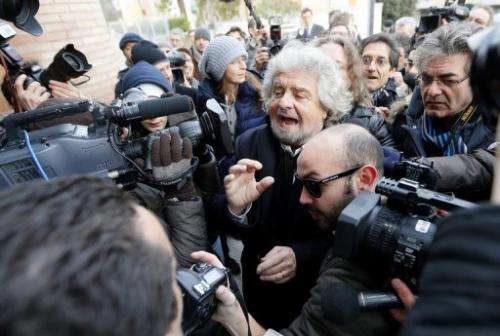Social media rules Italy's austerity elections

Italy's election candidates have swapped street rallies for Obama-style social media campaigns, sparking feisty online debates among sceptical and irreverent younger voters.
"The politicians have gone wild," Gianpietro Mazzoleni, professor of political communication at Milan University, told AFP.
"They've jumped on the social media train and are investing a vast amount of energy in it," he said.
From ironic photo montages on official party websites to cutting caricatures on Facebook, the race for head of government in the February 24 and 25 polls is largely playing out online, with television appearances stoking the Internet chatter.
"It's clear the change in tactics has been influenced by US President Barack Obama's victorious use of social media in his campaigns. The candidates are using social networks as megaphones," said Paola Giudiceandrea, an expert on political digital communications.
The frontrunner centre-left Democratic party is targeting voters through pop-culture references—with its cigar-chomping former Communist party leader Pierluigi Bersani as one of the Blues Brothers, and comparisons with the United States.
"The Democratic Party website has a new photo montage daily with an ironic take on the latest political topics, using images that can easily be posted and shared on Facebook," said Riccardo Luna, coordinator of the italia2013.me website which pulls together election chat from the Internet.
One such montage compares rival conservative candidate and former prime minister Silvio Berlusconi with the American football superbowl: "In America they have the superbowl, in Italy the super ball"—a play on words since "ball" in Italian also means "lie".
"This is political pop online, and it's perfect for Bersani because he feels uneasy at large electoral rallies: he prefers to drop in on fellow comrades and give them a pat on the back," he said.

Italy's outgoing Prime Minister Mario Monti, a technocrat hoping to launch his first electoral bid at the head of a centrist coalition, has also chosen social media over rallies.
The economic crisis and the austerity measures imposed by his government also mean politicians simply have less money to throw around.
The former eurocrat, currently polling at 13 percent compared with Bersani's 34 percent and Berlusconi's 28 percent, was the first Italian premier to reply to users' questions on Twitter—"a move which brought him great visibility and over 200,000 followers," Luna said.
Monti was also the first to use Vine, an app which allows users to post six-second videos on Twitter.
The professorial premier's following on Twitter is nothing, however, to the 860,000 people who follow Italian comedian- turned-politician Beppe Grillo, who launched his Five Star Movement on the Internet and is tipped to steal protest votes.
Currently polling at 18 percent, Grillo has stood out as the only candidate touring around Italy on an old-fashioned campaign bus.
"Grillo is an actor, he's the only one who can really put on a show. He galvanises his audience, jumping around the stage, but he avoids television as he knows he's not going to look good sitting still on a chat show," said Mazzoleni.
Grillo leads the pack on Facebook with over one million fans—followed by far-left leader Nichi Vendola and then Berlusconi with under 500,000.
Three-time-premier Berlusconi, credited by media experts as having been the first to realise the potential of television as a political tool in Italy, still relies heavily on getting his message broadcast into sitting rooms across the country however.
While there are some three million people who regularly tweet in Italy according to Mazzoleni, the majority of Italy's ageing population are less likely to use social media.
"Berlusconi is a huge presence on television but he's not on Twitter, because his is a one-directional communication strategy: he can promise and proclaim but he doesn't have to respond to online users' reactions," Giudiceandrea said.
The media magnate's latest promise—to refund a controversial housing tax brought in by Monti if elected—was ridiculed widely on Facebook pages dedicated to improbable things the billionaire may "give back" to the people, from Elvis and the Holy Grail, to Italians' dignity.
"The idea of using social media as an election platform may have been inspired by the United States, but Italians have put their own spin on it," Mazzoleni said.
"Italians jump in and offer contradictory opinions all at once. They're very individualistic—an approach that fragments the power of social media to some extent—but they're also vivacious, engaged and brilliantly irreverent," he said.
(c) 2013 AFP


















